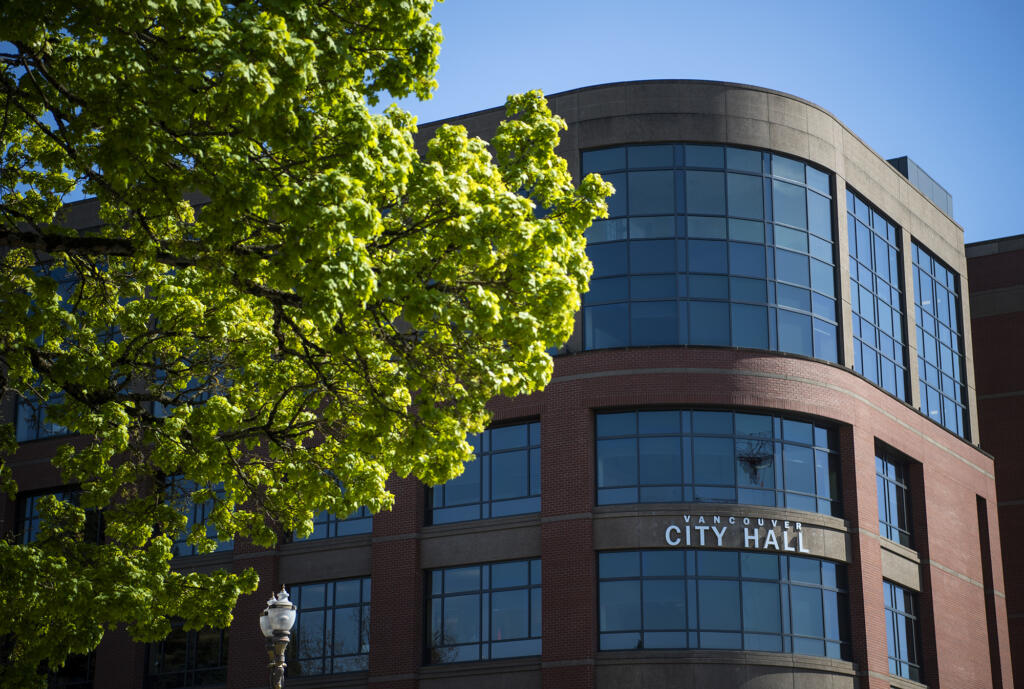The Vancouver City Council unanimously approved changes to city code Monday to protect government officials, staff and volunteers from targeted protests outside their homes — a move that its challengers called unlawful.
Altogether, the changes created definitions regarding pedestrian interference and noise regulations applicable to all residents in Vancouver — not just city employees’ homes.
The ordinance expanded upon the definition of pedestrian interference to prohibit targeted protests at people’s homes, adding to aggressive begging and traffic obstruction. Nina Cook, Vancouver chief assistant city attorney, referred to the U.S. Supreme Court’s upholding of a similar ordinance in 1988 that banned targeted picketing in Frisby v. Schultz.
“The Supreme Court has consistently held that regulating speech is permissible if the regulations are narrowly drawn and tailored in time, place and manner and balanced in compelling government interest,” she said.
Cook said picketers who target homes are not seeking to disseminate information but to intrude upon its occupants. The city’s ordinance does not restrict a person’s ability to protest but regulates where it can occur.
The code modifications say what noise is permissible in residential districts, and they prohibit the use of some types of noisemakers. It addresses infrasound, vibrations that aren’t detected by sound-monitoring tools, as a noise to include in the code.
The city can also now submit a claim or lawsuit on behalf of affected government officials, staff and volunteers to obtain restraining and protective orders.
Wynn Grcich and other opponents of the code said the move was unconstitutional and threatened their free speech.
However, city officials said all the municipal code changes are legal.
“It’s important to note that the constitutional protection of free speech in the First Amendment is not absolute and has never been,” Cook said during her presentation to the council. “It is always based on a balancing test.”
Cook said the alterations constitutionally balance a person’s free speech while limiting potentially harmful behavior. The First Amendment ensures a person’s right to free speech, but the city may establish restrictions on speech if it’s content-neutral, serves a significant interest and leaves other channels for communication, she said.
Previous causes for concern
Protests outside officials’ homes inspired the creation of the ordinance.
Ariel Fitzpatrick of Vancouver pushed the ordinance forward with the help of Councilor Sarah Fox. Fitzpatrick was married to a city attorney at the time that protesters began gathering outside her home in 2020, many of whom were protesting COVID-19 measures.
Protesters consisted of members from right-wing group Patriot Prayer, as well as others who responded to requests from People’s Rights Washington to assemble at the residence. Fitzpatrick said for months, they used bullhorns, shouted and stalked her as she walked around the neighborhood. The intimidation prompted Fitzpatrick to install a security system in her home.
“They came right up and tried to take photos through (my) shutters. It was terrifying,” she said in an interview with The Columbian.
Multiple people crowded around her home and expanded their harassment to neighboring residences, she said. One of Fitzpatrick’s neighbors moved and those who remained coalesced to support her — sometimes sitting in Fitzpatrick’s tomato garden to watch the protesters’ behavior.
Fitzpatrick said she is thankful for the council’s decision to pass the ordinance, though she remains skeptical of how it will be enforced.
“I have a huge amount of appreciation for the bravery of our council members (and) for the community members and neighbors that stood with me,” she continued, “but I have a deep skepticism for our officers’ willingness to uphold (the ordinance).”
Donna Sinclair, a former Washougal School Board member, lauded the Vancouver City Council’s decision to mitigate targeted protests in residential areas. She was on the receiving end of such demonstrations in 2021, which began when individuals were asked to leave a school board meeting for not complying with mask regulations.
Sinclair, who no longer serves on the board, still receives messages that she views as forms of intimidation.
“This has gone beyond what is usually involved in politics,” she said in an interview with The Columbian. “That’s why I support this ordinance.”




